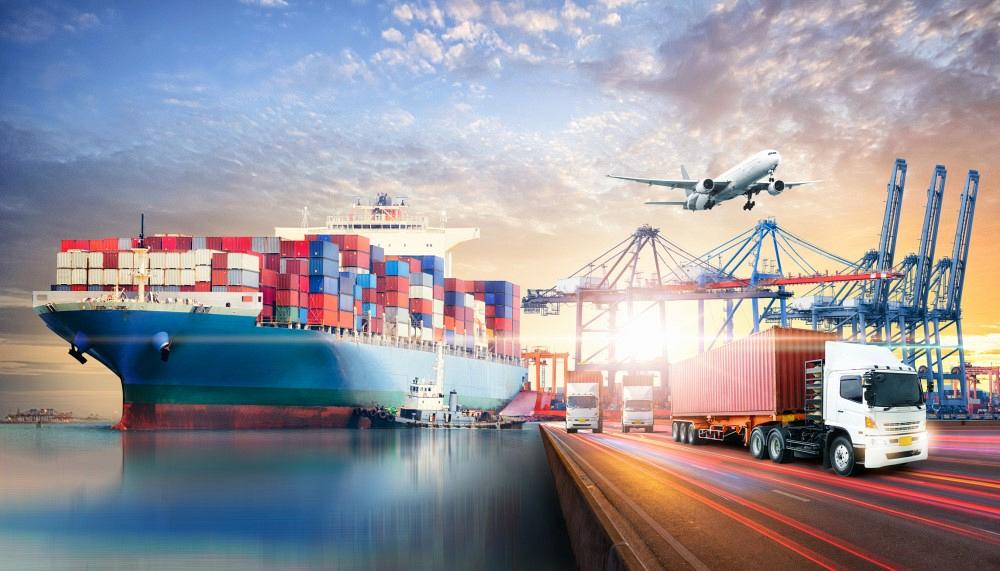Contributing Writer
- FMA
- The Fabricator
- FABTECH
- Canadian Metalworking
Categories
- Additive Manufacturing
- Aluminum Welding
- Arc Welding
- Assembly and Joining
- Automation and Robotics
- Bending and Forming
- Consumables
- Cutting and Weld Prep
- Electric Vehicles
- En Español
- Finishing
- Hydroforming
- Laser Cutting
- Laser Welding
- Machining
- Manufacturing Software
- Materials Handling
- Metals/Materials
- Oxyfuel Cutting
- Plasma Cutting
- Power Tools
- Punching and Other Holemaking
- Roll Forming
- Safety
- Sawing
- Shearing
- Shop Management
- Testing and Measuring
- Tube and Pipe Fabrication
- Tube and Pipe Production
- Waterjet Cutting
Industry Directory
Webcasts
Podcasts
FAB 40
Advertise
Subscribe
Account Login
Search
Domestic iron and steel content requirements increase sharply in infrastructure bill
Metal for federal projects must be 100% sourced in the U.S.
- By Stephen Barlas
- December 13, 2021

The Infrastructure Investment and Jobs Act (IIJA), which promises to invest billions into shoring up U.S. infrastructure, is going to translate into a lot of work for metal fabricators. But they aren't alone. The buy American provisions that are part of the new law are going to keep domestic mills very busy as well. Getty Images
One of the unsung provisions of the mega-infrastructure bill President Joe Biden signed on Nov. 15 is the legislation’s expansion of buy American mandates attached to federal infrastructure spending.
The omnibus bill, called the Infrastructure Investment and Jobs Act (IIJA), includes a separate bill called the Build America, Buy America Act (BABA). That legislation essentially puts into law Biden’s previous executive order that boosted buy American provisions of various laws, including how they apply to domestic sales of iron and steel.
Currently federal dollars for highway, water, bridge, defense, and other infrastructure projects are subject to buy American provisions only when domestic content requirements apply, such as the Buy American Act of 1933; the Berry Amendment, which covers DOD purchases; the Kissell Amendment, which covers the Department of Homeland Security; the Jones Act of 1920, which prohibits any non-U.S. vessel from participating in trade between points of the U.S.; the Cargo Preference Acts of 1904 and 1954; and others. The BABA goes much further. It says all federally funded infrastructure programs must comply with buy American requirements. Examples of programs with no or inadequate buy America coverage are highway projects, airport construction projects, water infrastructure projects, civil works projects, and energy infrastructure projects.
Moreover, the BABA provision is stricter than current laws, which define “domestic content” as comprising 55% of any product. Last summer the Biden administration proposed raising that to 75%. No final action there has been taken.
The requirement for iron and steel is even tougher under the BABA. Domestic content is defined as 100%.
“In summary, the BABA would bar the award of federal financial assistance for infrastructure unless all of the iron, steel, and manufactured products and construction materials used in the project are produced in the United States,” said Dustin Painter, an attorney with Kelley Drye & Warren.
In addition, all the iron, steel, and manufactured products used in a federally funded infrastructure project must be entirely produced in the United States, “from the initial melting stage through the application of coating,” Painter added.
However, exemptions from the 100% requirement can be granted in certain instances.
Prior to the BABA, some foreign-sourced materials could be used to construct many taxpayer-funded highways, roads, bridges, water, and energy infrastructure projects. For example, the Federal Highway Administration (FHWA) has its own buy America requirements, but they are applied only to iron and steel used for structures. With that in mind, the FHWA also has estimated that structural steel accounts for less than 5% of the costs of a typical highway project. That means the vast majority of materials used to construct federally assisted highways, roads, and bridges do not have to be produced in the U.S. The BABA changes that.
Here is an overview of the IIJA investments in the following key areas:
- Rebuild roads and bridges ($110 billion)
- Improve public transit systems ($39.2 billion)
- Expand passenger rail and cover rail safety ($66 billion)
- Upgrade ports and waterways ($16.6 billion)
- Upgrade airports ($25 billion)
- Invest in broadband infrastructure ($65 billion)
- Fix war systems ($55 billion)
- Modernize the power sector ($65 billion)
- Improve climate resilience ($47.2 billion)
While the BABA provisions will excite steel manufacturers in the U.S., they will not sit well with U.S. steel users, who oppose provisions of the Biden administration Made in America proposed rule issued last summer. The American Foundry Society (whose members import some pig iron from China), the National Electrical Manufacturers Association (NEMA), the shipbuilders, and many other domestic manufactured goods producers opposed the increase in the domestic content requirement from 55% to 75% over a period of years.
For example, Philip Squair, NEMA’s vice president of government relations, wrote to the General Services Administration, which issued the proposed rule for the Biden administration, opposing the increase to 75%.
“This large increase will be difficult for manufacturers to meet, because of the continued limitation of U.S. related supplies and materials that influence our global supply chain. Likewise, the limitation of supplies may prevent the Federal Government from procuring products at reasonable cost.”
The BABA provision will ratchet up those concerns.
subscribe now

The Fabricator is North America's leading magazine for the metal forming and fabricating industry. The magazine delivers the news, technical articles, and case histories that enable fabricators to do their jobs more efficiently. The Fabricator has served the industry since 1970.
start your free subscriptionAbout the Author

Stephen Barlas
- Stay connected from anywhere

Easily access valuable industry resources now with full access to the digital edition of The Fabricator.

Easily access valuable industry resources now with full access to the digital edition of The Welder.

Easily access valuable industry resources now with full access to the digital edition of The Tube and Pipe Journal.
- Podcasting
- Podcast:
- The Fabricator Podcast
- Published:
- 04/16/2024
- Running Time:
- 63:29
In this episode of The Fabricator Podcast, Caleb Chamberlain, co-founder and CEO of OSH Cut, discusses his company’s...
- Industry Events
16th Annual Safety Conference
- April 30 - May 1, 2024
- Elgin,
Pipe and Tube Conference
- May 21 - 22, 2024
- Omaha, NE
World-Class Roll Forming Workshop
- June 5 - 6, 2024
- Louisville, KY
Advanced Laser Application Workshop
- June 25 - 27, 2024
- Novi, MI
































